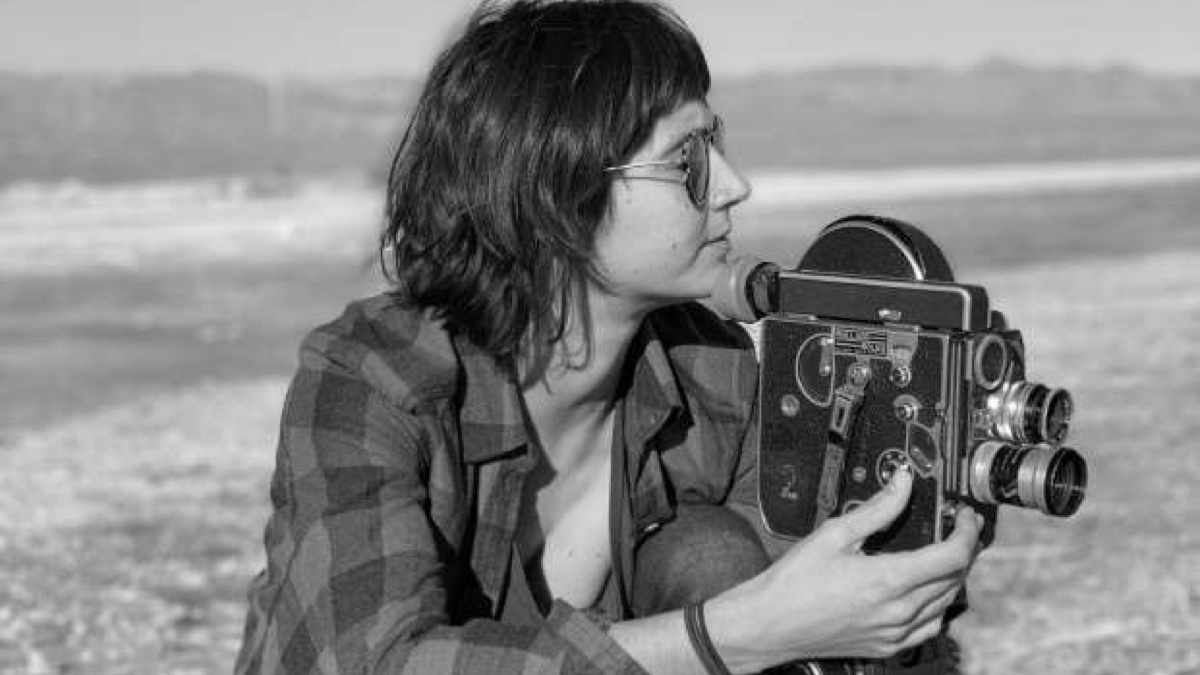
13/10/2022
Moreiras: With 'Sine die' I spent months in conflict with myself
What made you want to film this story? It came out of a necessity to process an event in my life that wasn’t yet fully over and that I couldn’t quite explain. Sine die is the second film I’ve made about this sickness.The first time I realized that I needed to turn this experience into an audio-visual piece, I was in the middle of getting an MRI. The machine’s acoustics were enough to be overwhelming and chaotic, but the whole event was made so surreal by the fact that the room’s ceiling, otherwise lit with typical fluorescent bulbs,had a makeshift lightbox-type quadrant picturing a cherry blossom tree. I suppose it was meant to relax the patient, but it was so bizarre.That film, Not For Medical Use (2017), is all about the sensorial experience of being medically imaged. With Sine die, I spent months at odds with myself, not wanting to fully see that what had occupied my mind for so long in relation to Palomares was indeed a newfoundkinship, or geologic empathy with the ground vis-à-vis my own medical catastrophe. I initially envisioned the film being more concretely about the story of Palomares, about the historical event, but somewhere along the pre-production process I came to terms with the fact that I didn’t have any intention of making a historical documentary. That actually the film was needed to be about this kinship and about contamination more broadly speaking—about events that seem to seep into deep time (obviously what happened to me falls under the realm of human duration, but our capacity to pay attention to such long-standing emergenciesalso seems to eclipse and distort this duration. I think others can relate to this now more than ever after having gone through the Covid pandemic. I’m pretty sure this virus will outlive all of us).
To whom is this film dedicated?
It is dedicated to anybody and everybody who has gone through an experience where nonresolution must be subsumed into everyday life. With Palomares, there is still ½ kilo of contaminated soil that needs to be removed. There are ecological considerations that need to be made about how best to help restore the vitality of the land, but the juridical situation, which involves both the US and Spanish governments, is perpetually at an impasse regarding who should be saddled with the bill. Without resigning oneself to these failed attempts at (environmental) justice, at some point there’s also a lot to be said for folding any given situation into a life that continues to move forward, whether sometimes we want it to or not. Ultimately, I would say that this film is dedicated to letting oneself experience the joys that come with survival. Without anthropomorphizing too much, I think the earth relays this all the time: flowers that learn to grow and thrive in such conditions, for example.
It's a story about recovery and survival, body and landscape, how are you now?
You’re currently catching me while I’m recovering from pneumonia…but I’m sure that’s just coincidence. I’m doing well, thank you for asking :)
What is the biggest obstacle you faced during filming?
We didn’t run into too many issues while filming, thankfully. But over the course of my time there, I did become immensely aware of how tired the locals are of having this event be the thing they’re publicly known for. The other side of this equation though, is that this event also forms part of the US’s Cold Warhistory and is almost entirely unknown to the US population. It is not talked about or acknowledged. These Cold War flights often left from the Johnson airbase in North Carolina, where I grew up, and the first time I heard about it was when Iwas already an adult. Not to mention that a similar accident had already happened in North Carolina a few years prior to Palomares. Currently there are 35 declassified accidents of a similar nature during the time of these alert missions known as Operation Chrome Dome (1960-68). Given the scope, I think there has to be a balancing act between respecting the locals’ desires to move forward –the need to move forward – and in bringing to light a story that still demands to be accounted for. I will say however, that it was this tension, this balancing, that helped take the decision for it not being about Palomares, but rather a shared narrative that included my personal medical history; and why I felt that this duality was so important. At its core,Sine die tells the story of a mirroring-in-difference of two half-beings marred in radioactive particles that float on and beneath the earth’s surface, and of nodules, incisions, and dying tissue advancing beneath one’s skin. The telluric and the biological, for me, are always in dialogue. Both in and outside of cinema.
What is the feedback from the audience?
I’ve received wonderful feedback. That’s been the best part about showing the film: engaging with others and hearing their stories, even if they are quite personal or difficult things. There’s been a lot of expressions of hope, too, which makes me quite happy.
Did the film assume any change of government, to remove the plutonium?
Unfortunately, no. But let’s see what this newest US administration does…
Why Sine Die?
Sine die is a juridical term meaning‘without day or time’. If a case is adjourned sine die, it means that while the case has not ended in resolution, there are no plans to reconvene, to discuss the case at any future date. This has so far been the situation with Palomares. For me personally, as a consequence of my sickness, I too was ensnared in legal proceedings for a few years. And although it has since been settled, that resolution came in the form ofdemanding silence – there are signed NDAs and so forth – which really begs the question…what constitutes resolution and under whose terms?
What project are you currently working on?
I’m working on a new film called El Aquí, which also takes aim at a certain form of silencing. Here’s my (working) synopsis:“What starts as an unsanctioned academic conference by a group of Hispanic Studies scholars,a group that includes my own parents, evolves into a meditation on what it means to move toward a third space of experiential thought. This space, loosely referred toby them as 'infrapolitics', raises pressing issues regarding the insular and often toxic culture of academia, and the urgent need to resist its demand for doctrinal homogeneity.” I probably still need to work on making those sentences shorter!
How familiar have you been with the Mediteran Film Festival?
I had heard fantastic things about the festival and am truly thrilled to form part of the incredible program you all have put together. Thank you so very much for including our film.


